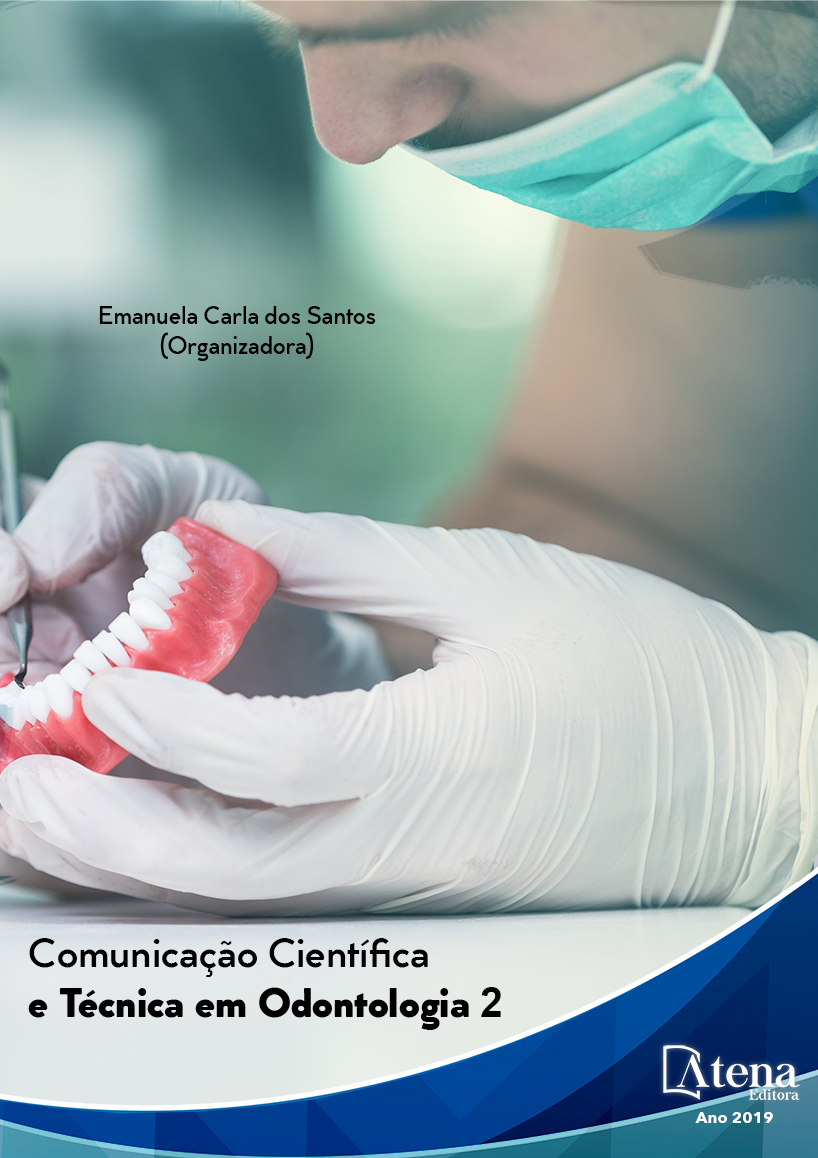
CAPACIDADE COGNITIVA E SAÚDE BUCAL: ESTUDO COMPARATIVO COM IDOSOS INTERNADOS EM UM HOSPITAL UNIVERSITÁRIO
O objetivo do presente estudo
foi comparar a condição de saúde bucal do
idoso internado em um hospital universitário,
segundo sua capacidade cognitiva. Trata-se de
um estudo transversal, quantitativo, realizado
com 100 idosos internados em um hospital
universitário do estado do Paraná. Para avaliar
a cognição utilizou-se o Mini Exame do Estado
Mental e para a saúde bucal um instrumento
para avaliação clínica. As informações
foram coletadas nos próprios leitos por um
único pesquisador calibrado. Considerouse
como variável dependente a cognição
e como independentes as características
sociodemográficas, de saúde bucal (intra e extra
oral) e necessidade de tratamento odontológico.
Os dados foram analisados pelos testes
Exato de Fisher e Qui-Quadrado. Verificouse
que a maioria dos idosos internados (75%)
apresentaram comprometimento cognitivo,
sendo esta significativamente mais prevalente
em idosos com mais de 80 anos, com menor
escolaridade e renda (p<0,05). Ainda, idosos com comprometimento cognitivo
apresentaram dificuldade significativamente maior para falar (p=0,0021); maior
presença de alterações rebordo alveolar no arco superior (p=0,024), principalmente
candidose; hipossalivação (p=0,029) e menor uso de prótese (p=0,017). Conclui-se
que os idosos hospitalizados apresentaram elevada prevalência de comprometimento
cognitivo, e condição deficitária de saúde bucal, principalmente no que se refere à
problemas na fala, presença de lesões de mucosa, hipossalivação e baixo uso de
prótese, apesar do elevado edentulismo. Os achados demonstram a importância de se
investir um olhar mais cautelar à saúde bucal destes sujeitos, com vistas a potencializar
a qualidade de vida e saúde.
CAPACIDADE COGNITIVA E SAÚDE BUCAL: ESTUDO COMPARATIVO COM IDOSOS INTERNADOS EM UM HOSPITAL UNIVERSITÁRIO
-
DOI: 10.22533/at.ed.2651929033
-
Palavras-chave: Saúde Bucal; Cognição; Idoso; Internação Hospitalar; Assistência Odontológica.
-
Keywords: Oral health; Cognition; Aged; Hospitalization; Dental Care.
-
Abstract:
The objective of the present study was to compare the oral health
condition of the elderly hospitalized in a university hospital, according to their cognitive
ability. This is a cross-sectional, quantitative study of 100 elderly patients admitted to a
university hospital in the state of Paraná. To evaluate cognition, the Mini Mental State
Examination was used and for oral health an instrument for clinical evaluation. The
information was collected in the beds themselves by a single calibrated researcher.
The sociodemographic characteristics, oral health (intra and extra oral) and the need
for dental treatment were considered as dependent variables. Data were analyzed by
Fisher’s Exact and Chi-Square tests. It was verified that the majority of hospitalized
elderly (75%) presented low cognitive capacity, being significantly more prevalent in
the elderly with more than 80 years, with less education and income (p<0.05). Still,
elderly people with cognitive impairment had significantly greater difficulty speaking
(p=0.0021); greater presence of alveolar ridge changes in the upper arch (p=0.024),
mainly candidiasis; hyposalivation (p=0.029) and lower prosthesis use (p=0.017). It was
concluded that hospitalized elderly patients presented a high prevalence of cognitive
deficits and poor oral health status, especially regarding speech problems, presence of
mucosal lesions, hyposalivation and low use of prostheses, despite high edentulism.
The findings demonstrate the importance of investing a more cautious look at the oral
health of these subjects, with a view to enhancing quality of life and health.
-
Número de páginas: 15
- Jackson Luiz Fialkoski Filho
- Danielle Bordin
- Clóris Regina BlanskiGrden
- Camila Zanesco
- Luciane Patricia Andreani Cabral
- Eduardo Bauml Campagnoli
- Cristina Berger Fadel


